ADIADE51xx單相電表解決方案
ADI公司的ADE5166/ADE5169/ADE5566/ADE55691集成了電表模擬前端(AFE)和具有8052 MCU核,RTC和LCD驅(qū)動(dòng)器以及外設(shè)的固定功能DSP解決方案.工作電壓2.4V-3.7V,25度C時(shí)動(dòng)態(tài)范圍1000:1時(shí)的有功功率誤差小于0.1%,無(wú)功功率誤差小于0.5%,微處理器采用基于8052內(nèi)核,8052兼容的指令集,單周期4MIps特性.本文介紹了ADE5166/ADE5169/ADE5566/ADE5569主要特性,方框圖, ADE5566/ADE5569電表框圖以及采用8052 MCU,RTC和LCD驅(qū)動(dòng)器的單相電表評(píng)估板主要特性,電路圖,材料清單和PCB布局圖.
The ADE5166/ADE5169/ADE5566/ADE55691 integrate the Analog Devices, Inc., energy (ADE) metering IC analog front end and fixed function DSP solution with an enhanced 8052 MCU core, a full RTC, an LCD driver, and all the peripherals to make an electronic energy meter with an LCD display in a single part.
The ADE measurement core includes active, reactive, and apparent energy calculations, as well as voltage and current rms measurements. This information is accessible for energy billing by using the built-in energy scalars. Many power line supervisory features such as SAG, peak, and zero crossing are included in the energy measurement DSP to simplify energy meter design.
The microprocessor functionality includes a single-cycle 8052 core, a full RTC with a power supply backup pin, an SPI or I2C interface, and two independent UART interfaces. The ready-to-use information from the ADE core reduces the requirement for program memory size, making it easy to integrate complicated design into 62 kB of flash memory.
The ADE5166/ADE5169 include a 104-segment LCD driver and the ADE5566/ADE5569 include a 108-segment LCD driver, each with the capability to store up to four LCD screens in memory. This driver generates voltages capable of driving LCDs up to 5 V.
ADE5166/ADE5169/ADE5566/ADE5569主要特性:
通用特性:
Wide supply voltage operation: 2.4 V to 3.7 V
Internal bipolar switch between regulated and battery inputs
Ultralow power operation with power saving modes (PSM)
Full operation: 4.4 mA to 1.6 mA (PLL clock dependent)
Battery mode: 3.3 mA to 400 μA (PLL clock dependent)
Sleep mode
Real-time clock (RTC) mode: 1.7 μA
RTC and LCD mode: 38 μA (LCD charge pump enabled)
Reference: 1.2 V ± 0.1% (10 ppm/°C drift)
64-lead, low profile quad flat, RoHS-compliant package (LQFP)
Operating temperature range: ?40℃ to +85℃
能量測(cè)量特性:
Proprietary analog-to-digital converters (ADCs) and digital signal processing (DSP) provide high accuracy active (watt), reactive (var), and apparent energy (volt-ampere (VA)) measurement
0.1% error on active energy over a dynamic range of 1000 to 1 @ 25℃
0.5% error on reactive energy over a dynamic range of 1000 to 1 @ 25℃ (ADE5169 and ADE5569 only)
0.5% error on root mean square (rms) measurements over a dynamic range of 500 to 1 for current (Irms) and 100 to 1 for voltage (Vrms) @ 25℃
Supports IEC 62053-21; IEC 62053-22; IEC 62053-23; EN 50470-3 Class A, Class B, and Class C; and ANSI C12-16
Differential input with programmable gain amplifiers (PGAs) supports shunts, current transformers, and di/dt current sensors (ADE5169 and ADE5569 only) 2 current inputs for antitamper detection in the ADE5166/ ADE5169 High frequency outputs proportional to Irms, active, reactive, or apparent power (AP)
微處理器特性:
8052-based core
Single-cycle 4 MIPS 8052 core
8052-compatible instruction set
32.768 kHz external crystal with on-chip PLL
2 external interrupt sources
External reset pin
Low power battery mode
Wake-up from I/O, temperature change, alarm, and universal asynchronous receiver/transmitter (UART)
LCD driver operation with automatic scrolling
Temperature measurement
Real-time clock (RTC)
Counter for seconds, minutes, hours, days, months, and years
Date counter, including leap year compensation
Automatic battery switchover for RTC backup
Operation down to 2.4 V
Ultralow battery supply current: 1.7 μA
Selectable output frequency: 1 Hz to 16 kHz
Embedded digital crystal frequency compensation for calibration and temperature variation of 2 ppm resolution
Integrated LCD driver
108-segment driver for the ADE5566 and ADE5569
104-segment driver for the ADE5166 and ADE5169
2×, 3×, or 4× multiplexing
4 LCD memory banks for screen scrolling
LCD voltages generated internally or with external resistors
Internal adjustable drive voltages up to 5 V independent of power supply level
On-chip peripherals
2 independent UART interfaces
SPI or I2C
Watchdog timer
Power supply management with user-selectable levels
Memory: 62 kB flash memory, 2.256 kB RAM
Development tools
Single-pin emulation
IDE-based assembly and C source debugging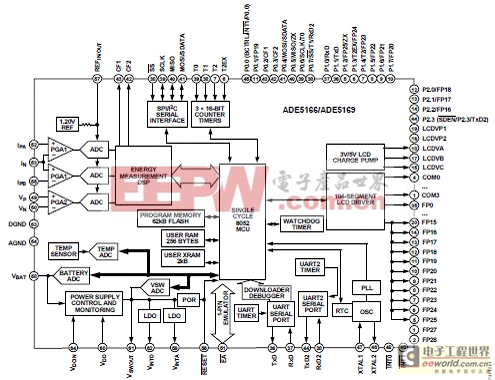
ADE5166/ADE5169 Functional Block Diagram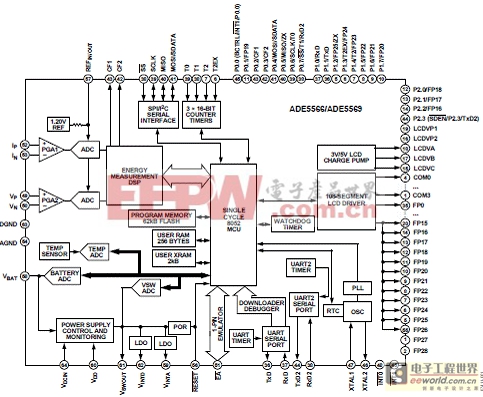
圖1.ADE5566/ADE5569功能框圖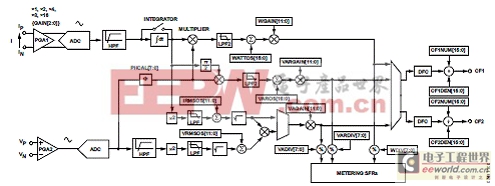
圖2.ADE5566/ADE5569電表框圖
采用8052 MCU,RTC和LCD驅(qū)動(dòng)器的單相電表評(píng)估板
(ADE71xx/ADE75xx/ADE51xx/ADE55xx 系列)
The EVAL-ADE7169EBZ-2/ADE5169EBZ-2 kit includes an isolated USB-to-UART converter (ADE8052Z-DWDL1) for communication and debugging purposes. The ADE7116/ADE7166/ADE7169/ADE7566/ADE7569/ADE5166/ADE5169/ADE5566/ADE5569 (hereafter referred to as ADE71xx/ADE75xx/ ADE51xx/ADE55xx) family is supported by the IAR develop-ment environment. Evaluation software developed in LabVIEW? provides the means to evaluate the performance of the ADE71xx/ ADE75xx/ADE51xx/ADE55xx.
The evaluation kit includes a CD that provides all of the asso-ciated documentation, tools, and drivers to set up and use the evaluation board for the ADE71xx/ADE75xx/ADE51xx/ADE55xx.
評(píng)估板主要特性:
Full evaluation kit including evaluation board hardware, evaluation software, and development tools
Supported by IAR development tools for assembly and C code development Isolated USB-to-UART communication
LabVIEW evaluation software for evaluation of meter performance LabVIEW download tools for user firmware download
Single evaluation board supports ADE7116/ADE7166/ADE7169/ADE7566/ADE7569 and ADE5166/ADE5169/ADE5566/ADE5569
EVAL-ADE7169EBZ-2 comes with ADE7169 IC installed
EVAL-ADE5169EBZ-2 comes with ADE5169 IC installed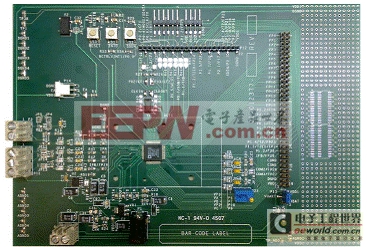
圖3.ADE71xx/ADE75xx/ADE51xx/ADE55xx評(píng)估板外形圖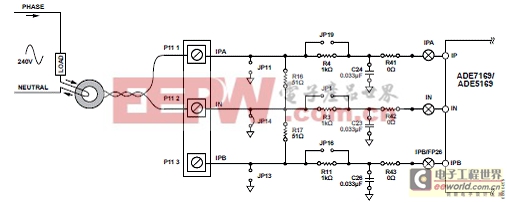
圖4.CT傳感器連接到電流通道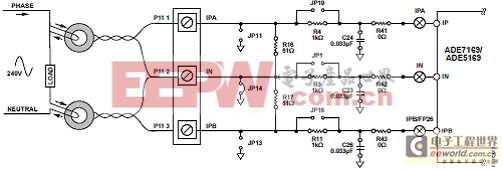
圖5.連接兩個(gè)CT到電流通道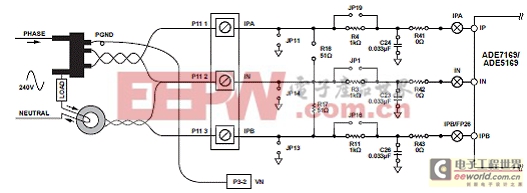
圖6.連接一個(gè)分流器和一個(gè)CT到電流通道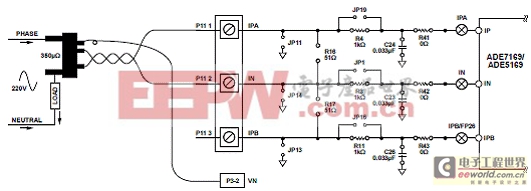
圖7.分流器用作電流傳感器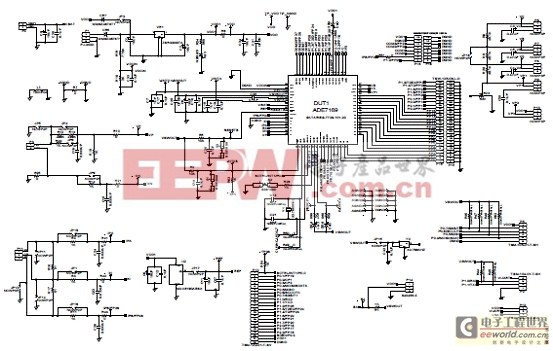
圖8.評(píng)估板電路圖
評(píng)估板材料清單(BOM):
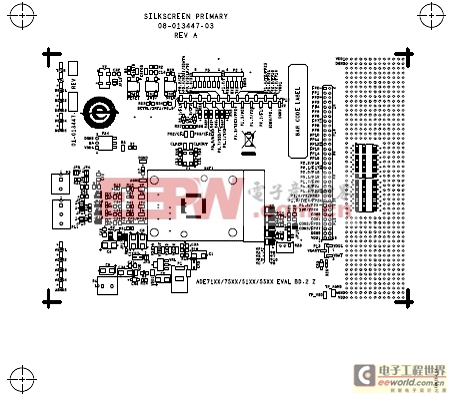
圖9.評(píng)估板PCB布局圖
詳情請(qǐng)見:
http://www.analog.com/static/imported-files/data_sheets/ADE5166_5169_5566_5569.pdf
和
http://www.analog.com/static/imported-files/user_guides/UG-061.pdf






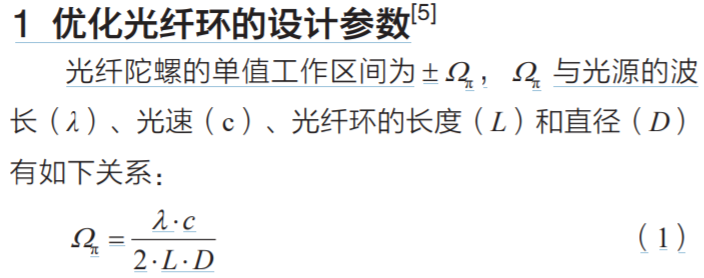
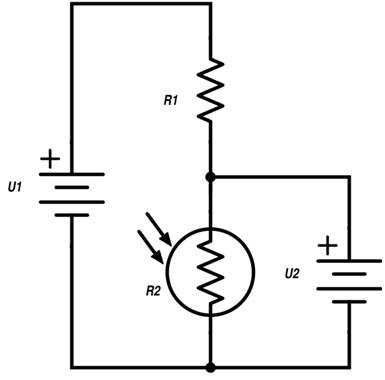
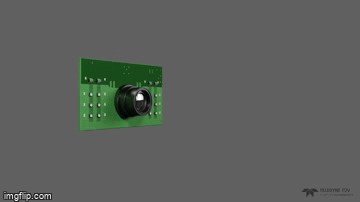

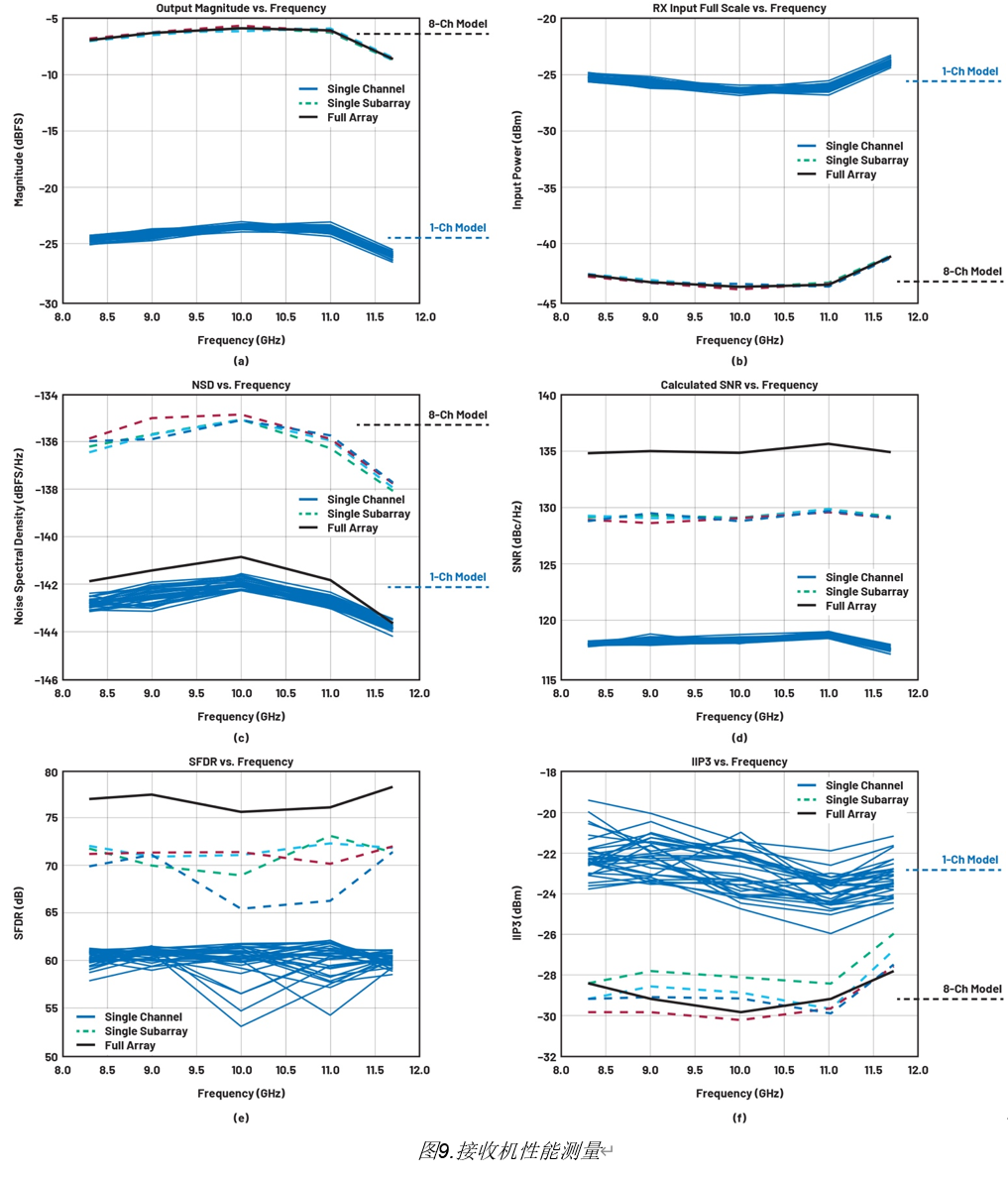
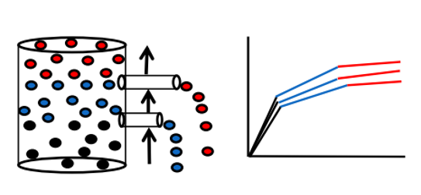


評(píng)論